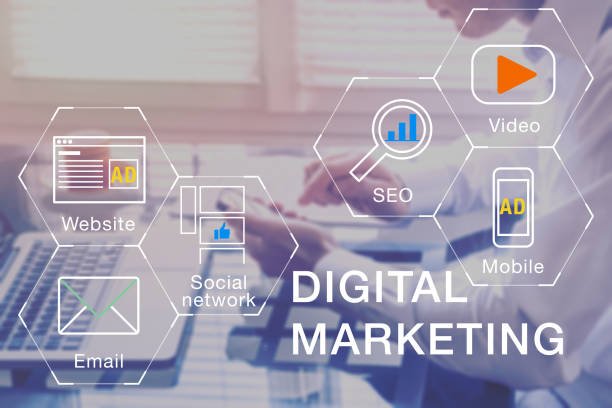Introduction
Social media has become an integral part of digital marketing in today’s landscape. In the past, businesses relied heavily on traditional advertising methods, but the rise of social media platforms has transformed marketing strategies. Platforms like Facebook, Instagram, Twitter, and LinkedIn now offer businesses unprecedented opportunities for direct engagement with their target audiences.
These platforms facilitate real-time communication, allowing businesses to showcase their products and services effectively, thereby enhancing visibility and reach.
Targeted Advertising and Audience Engagement
One of the key advantages of social media marketing is the ability to execute highly targeted advertising campaigns. Platforms such as Facebook and Instagram provide advanced targeting options, enabling brands to tailor ads based on specific demographics, interests, and behaviors. This precision enhances the effectiveness of marketing efforts and improves return on investment (ROI).

Additionally, social media simplifies audience engagement. Businesses can easily
gather feedback, address customer queries, and cultivate a loyal customer base. This interactive engagement fosters brand loyalty and enhances customer satisfaction.
Content Creation and Branding
Social media platforms serve as powerful tools for content creation and branding. Businesses can develop visually appealing images, videos, and graphics to represent their brand identity compellingly. Engaging content not only captivates the audience but also boosts brand awareness.
By consistently producing high-quality content, brands can effectively communicate their messages and distinguish themselves from competitors. Social media allows businesses to showcase their unique personalities and values, thereby deepening connections with customers.
The Role of Influencer Marketing
Influencer marketing has emerged as a highly effective trend in social media marketing. Brands collaborate with influencers to promote their products and services, leveraging the trust and loyalty these personalities have cultivated with their followers.
By partnering with influential figures, businesses can reach a broader audience, gaining credibility and authenticity that boosts customer trust and drives sales.
Social Media Analytics and Insights
Social media analytics tools provide invaluable insights for optimizing marketing strategies. Platforms like Facebook and Twitter offer detailed analytics features that track post performance, audience demographics, and engagement metrics.
These insights enable businesses to understand the effectiveness of their content and campaigns, refining future strategies accordingly. Analytics help identify successful approaches and highlight areas for improvement, ultimately enhancing overall marketing performance.
Customer Service and Support
Social media has also evolved into a critical channel for customer service and support. Customers can raise queries and issues directly on these platforms, allowing businesses to respond promptly and enhance customer satisfaction.

Timely and helpful responses foster trust and loyalty among customers. Moreover, social media enables businesses to track feedback and reviews, providing valuable information for service improvement. This customer-centric approach offers a competitive edge and strengthens customer relationships.
Social Media Advertising Trends
The landscape of social media advertising is constantly evolving, and businesses must stay informed about the latest trends. Current trends include video ads, shoppable posts, and augmented reality (AR) advertisements. Video content is particularly popular on social media, significantly increasing engagement rates.

Shoppable posts streamline the shopping experience by allowing users to purchase products directly on social media platforms. AR ads provide interactive experiences that enhance brand engagement.
Competitor Analysis and Benchmarking
Social media platforms also facilitate competitor analysis and benchmarking. Businesses can monitor their competitors’ activities and analyze their strategies to gain insights into market trends and customer preferences.
This analysis helps refine marketing strategies and adopt industry best practices, ultimately improving overall marketing performance.
Social Media Campaigns and Promotions
Effective social media campaigns and promotions can significantly boost brand visibility and engagement. Campaigns involving contests, giveaways, and limited-time offers engage customers and enhance brand awareness.
Promotions enable businesses to highlight their products and services through special offers and discounts. Strategic planning and execution are crucial for making social media campaigns successful and achieving desired marketing objectives.
Future Trends and Innovations
The future of social media marketing is promising, with numerous innovative trends on the horizon. Technologies like artificial intelligence (AI), machine learning, and chatbots are transforming how businesses engage with customers. AI-powered tools enhance personalized content recommendations and customer interactions, while chatbots offer 24/7 support.
Emerging trends also include the metaverse and virtual reality (VR) platforms, which offer immersive experiences. Businesses must adapt to these innovations to ensure their marketing strategies remain relevant and effective in the future.
In conclusion, this article provides a comprehensive exploration of the role of social media in digital marketing, highlighting strategies and benefits for businesses to effectively leverage these platforms.




